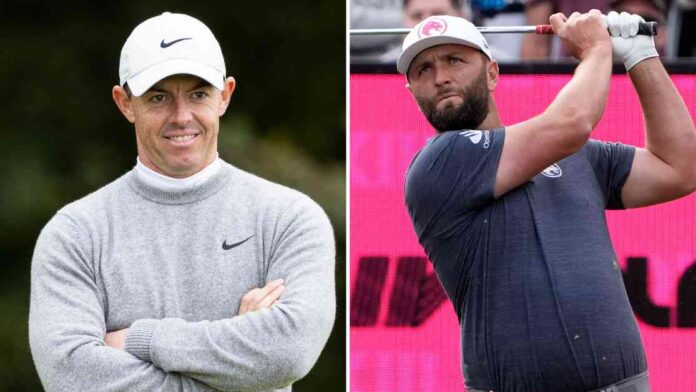Golf’s civil war is close to a £1 billion peace deal, with the rebel tour LIV’s Saudi Arabian backers ready to pay up to join the PGA Tour circuit. This deal will give Saudi Arabia’s Public Investment Fund an 11 percent share in the Tour and two positions on the PGA Tour board, including the chairman’s post. Superstars Tiger Woods and Rory McIlroy played important roles in the negotiations, and the deal is expected to be approved by PGA players.
Last year, the Saudis paid Jon Rahm nearly £500 million to join their ranks, and with assets totaling £720 billion, spending £1 billion to be part of the golfing establishment is a small cost for them. This agreement will finally put an end to the conflict between the PGA and LIV, which introduced the breakaway circuit three years ago. They managed to attract top players like Phil Mickelson, Bryson DeChambeau, Brooks Koepka, Sergio Garcia, Lee Westwood, and Ian Poulter with lucrative deals.
Initially, LIV events were held near London and players were banned from participating in PGA and DP World Tour events. However, now LIV tournaments will fall under the PGA umbrella. For players who remained loyal to the PGA Tour, there is expected to be a significant cash injection into the £1.2 billion fund created this year to reward them. The DP World Tour will also benefit from this deal, as their alliance with the PGA Tour will be strengthened, with additional funds allocated for prize money.
In addition to the financial aspects of the deal, there are also significant implications for the future of golf as a sport. The unity brought about by this agreement will likely lead to more collaboration and growth opportunities within the golfing community. It sets a precedent for resolving conflicts and differences through dialogue and negotiation rather than division and confrontation.
The involvement of high-profile players like Woods and McIlroy in the peace talks demonstrates the importance of leadership and diplomacy in resolving disputes. Their influence goes beyond the game itself and highlights the role of sports figures as ambassadors for peace and cooperation. By coming together to find a common ground, they have shown that even long-standing conflicts can be resolved through mutual understanding and compromise.
Overall, the £1 billion peace deal in golf marks a significant turning point in the sport’s history. It not only brings an end to a divisive period but also paves the way for a more inclusive and collaborative future for golf worldwide. The lessons learned from this experience can serve as a valuable example for other sports and industries facing similar challenges in the modern world.







